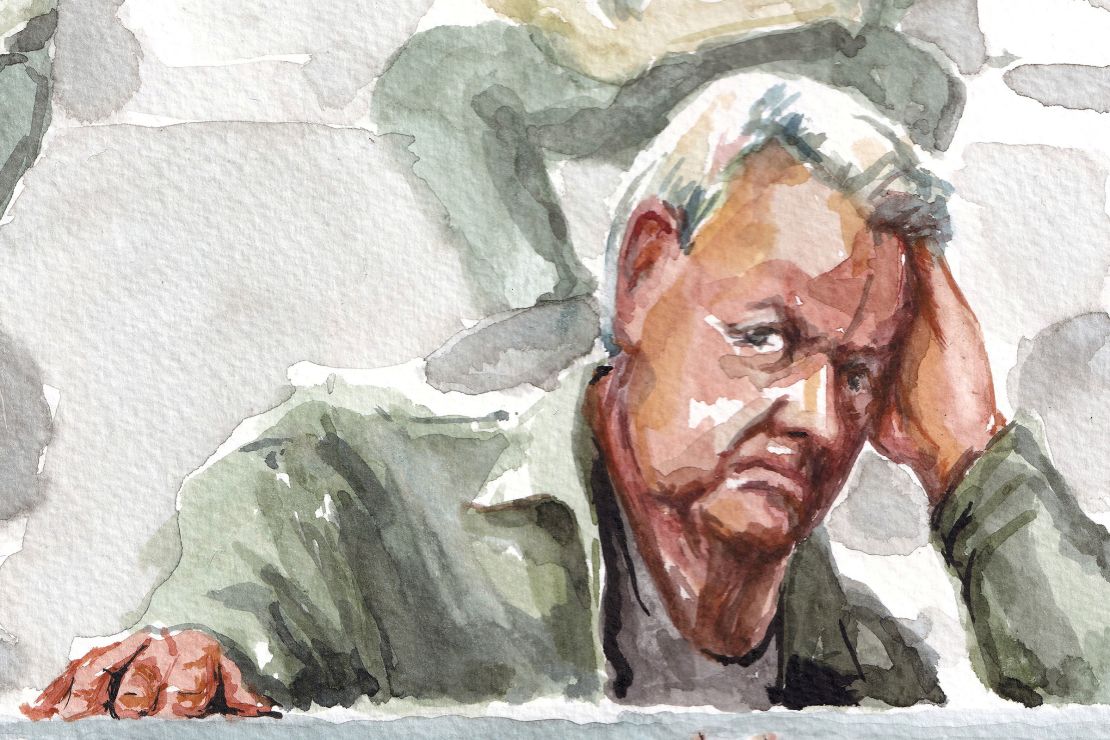CNN
—
It is the groundbreaking trial that turned French society upside down and sparked a profound debate on the issue of sexual violence and consent: the Pelicot mass rape case.
Many called it a sociocultural earthquake, a reckoning with France’s systemic women’s problem. The trial centers on 51 men, all of whom lived within 30 miles of each other. At the helm was Dominique Pelicot, who drugged and invited these strangers to attack and rape his then-wife Gisèle for over a decade.
Within this tiny geographical radius, an entire world of violence and misogyny existed.
On Thursday, hundreds of people packed an emotionally charged courtroom in Avignon, with many streaming through the courthouse to hear the fate of the defendants whose actions changed not only the lives of Gisèle and her family, but also that of the nation.
49 of the men were convicted of rape. Two were convicted of sexual assault. Four of the men were also convicted of possessing child sexual abuse images.
The men were “Monsieur-Tout-Le-Monde” or “Mr. “Everyman,” as they are now called – not career criminals. The men, aged 26 to 74, worked in, among other things, nursing, the military, journalism and the prison system.
But despite the overwhelming evidence against them, hundreds of damning videos showing the rapes and thousands of text messages revealing their plans, only a dozen of the men admitted their guilt, and many said they believed in Dominique’s consent – not from Gisèle – was enough to commit her crimes.
The horror of the crimes, coupled with the idea that they were carried out by “Mr. “Everyman” has fueled a national conversation about the normalization of sexual assault.

Dominique Pelicot was sentenced to 20 years in prison, the maximum sentence for his crime. The other men received prison sentences of between three and 15 years. Some have since been released after serving their suspended sentences.
Many say the punishments are not harsh enough and do not take into account the horror of the crime. And despite the prison sentences and no concrete changes, the women of Mazan – the southern French village where the crimes took place – say they could happen again tomorrow.
“What has really changed? The mentality hasn’t changed and neither have the laws, it remains the same and that’s why we don’t feel safe,” said Nedeljka Macan, a resident of Mazan.
Gisèle hoped that by relinquishing her anonymity – and thereby opening the trial to the public – she would help change rape culture, no matter how painful it was to see the shocking evidence of her abuse.
“It was a decision to make it public. And she did it in service to other women,” Sarah McGrath of Women for Women France told CNN.
It was this service, this courage and this defiance that made her a feminist hero, one determined to ensure that “shame switches sides.”
“France often has a reputation internationally for being really progressive when it comes to women’s rights,” McGrath said. “And that is the case, we just added the right to abortion to the Constitution, which is a huge step forward. However, when it comes to sexist and sexual violence, we lag significantly behind our other European neighbors.”
Data shows that survivors of sexual violence in France are less likely to come forward. Only 10% of rape victims even report the crime to the justice system. And of those reports, only 1% to 4% resulted in a conviction, McGrath said.
Gisèle Pelicot has now inspired these same victims to come forward and push for change. The last three months have spurred people across France to question themselves and reflect on what consent is. The trial has forced her to discuss rape culture and how to change it.
Although the trial will shape French history, activists and lawyers have stressed that it does not mark the end of an ugly chapter in time; but rather the beginning of a new era in which consent is taught in schools and incorporated into the criminal code.
Women’s rights activists are riding the wave of Gisèle’s call to action – and her optimism.
As she left the courthouse on Thursday, she said the trial had shown her that a “future in which women and men can live in harmony and mutual respect” was indeed achievable.
It is up to France to seize this moment and make it a reality.
CNN’s Kara Fox contributed to this report.



